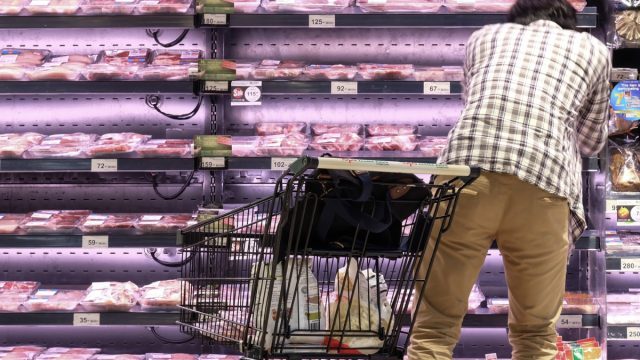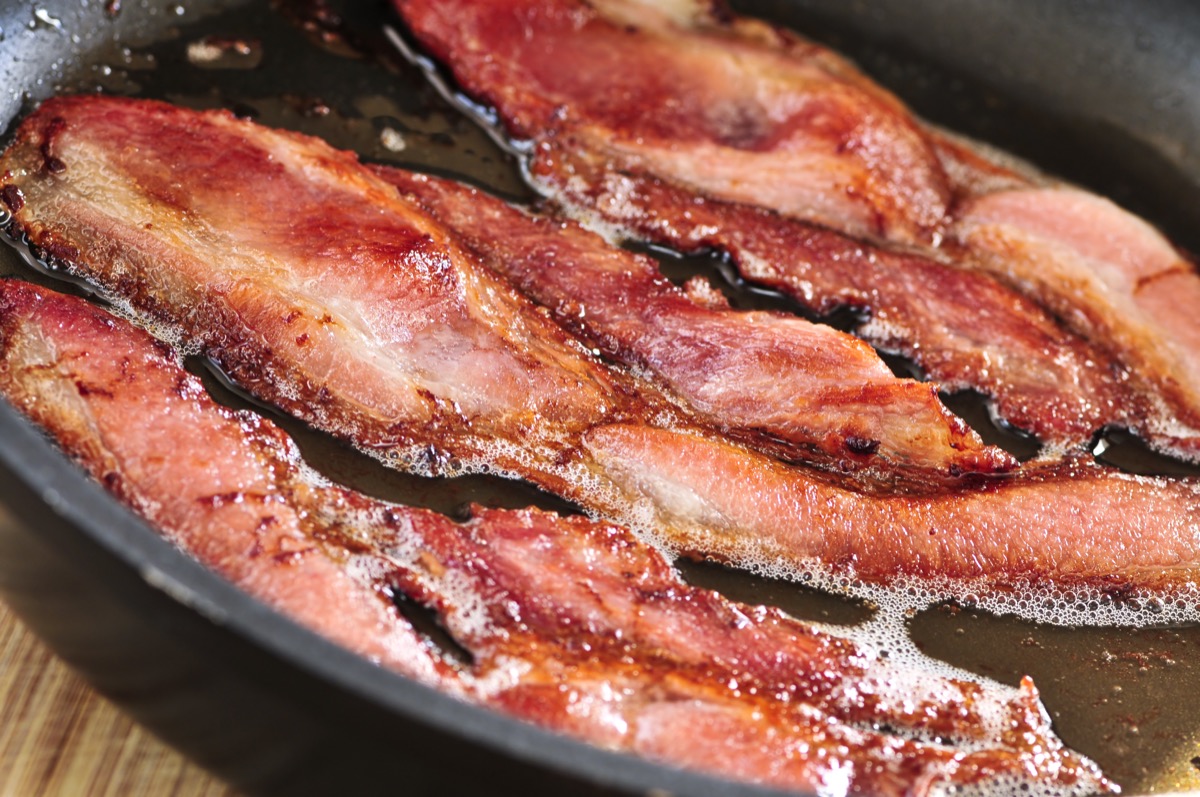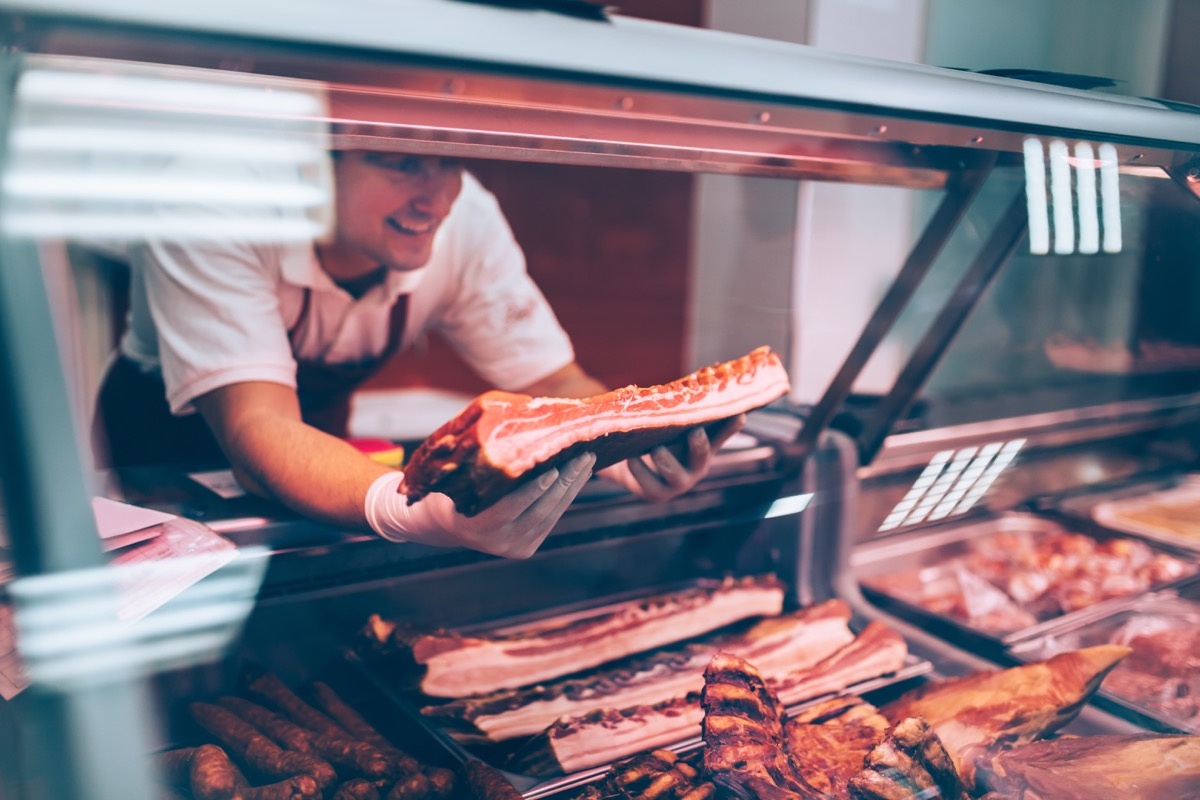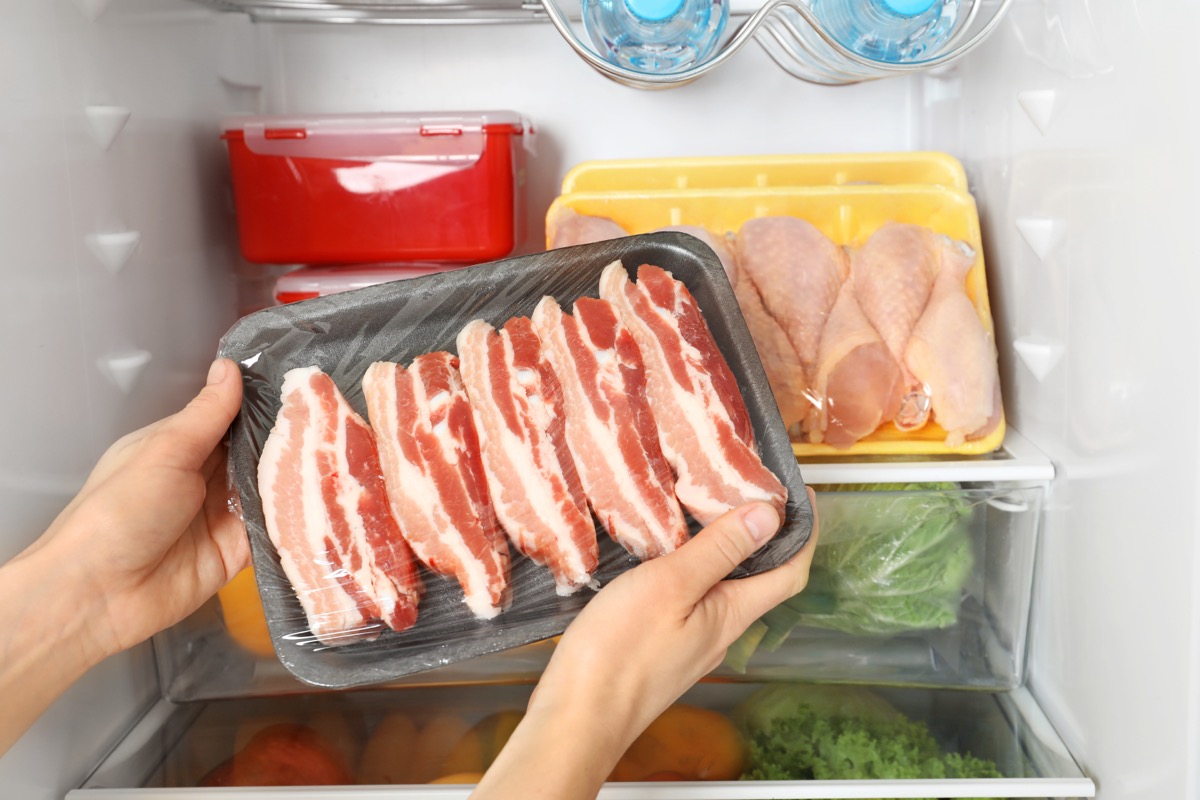If You Live Here, Bacon Is About to "Disappear," Experts Warn
Due to new animal welfare requirements, the bacon supply in this state is about to dwindle.

If your omelette doesn't quite feel complete without a side of crispy bacon, or you rely on a BEC to start your day off right, you might be in trouble. In just a few short months, one state will begin enforcing new animal welfare requirements that will make it very difficult for pork suppliers to continue doing their job. That, in turn, means you may not be able to get bacon, pork chops, and the like if you live there. To see if your future shopping trips will be affected by these new regulations, read on.
RELATED: Never Put This on Your Meat After Barbecuing, CDC Warns.
People in California may be unable to get bacon and other pork products in the new year.

On Jan. 1, 2022, California will have some new animal welfare standards, which were approved in 2018 in a landslide vote on Proposition 12. But these new requirements could have a serious effect on the state's bacon supply. Proposition 12 requires more space for pigs, chickens, and calves intended to be used for food. According to the new standards, the animals cannot be confined to the point that they can't lie down, stand up, extend their limbs, or turn around without touching other animals or the walls of their stalls.
As of next year, Proposition 12 will prohibit the sale of uncooked pork that isn't produced according to these new standards, regardless of whether it was raised in California or not, according to the Progressive Farmer.
While these shifts benefit the animals and thereby the people who eat them, they could negatively affect Americans' voracious consumption of pork products, specifically making items like bacon more difficult to find and more expensive when you finally do. As the Associated Press (AP) put it succinctly in the headline of their latest report, published Aug. 2, "Bacon may disappear in California as pig rules take effect."
RELATED: Never Grill Your Meat or Chicken Like This, USDA Warns.
While veal and egg producers think they can meet the new standards, pork suppliers are not as optimistic.

According to the AP, veal and egg producers feel the new standards won't cause an issue with their output. However, only 4 percent of pork operations are currently compliant with the new rules. The majority of California's pork supply comes from Iowa, where farms do not currently meet the new standards.
The only way to salvage the pork supply in California would be for the courts to temporarily allow non-compliant meat to be sold in the state, an effort some opponents of Proposition 12 have been spearheading. In late June, the Supreme Court denied to hear a challenge to the proposition that the North American Meat Institute (NAMI) filed.
It's unlikely that California will be able to adjust in time for when the standards go into effect.

While 2022 may seem far away, it's only a handful of months from now, which isn't enough time to build costly new facilities or inseminate sows and process the babies by January, the AP explains. "We are very concerned about the potential supply impacts and therefore cost increases," Matt Sutton, the public policy director for the California Restaurant Association, told the outlet.
California consumes about 15 percent of the pork produced in the U.S., the National Pork Producers Council says. According to Rabobank, a global food and agriculture financial services company, restaurants and grocery stores in California use about 255 million pounds of pork a month, but the state's farms only produce about 18 percent of that (45 million pounds).
RELATED: For more up-to-date information, sign up for our daily newsletter.
Customers may be the ones to pay the price.

Proposition 12—which is "the strongest farm animal protection law in the world," according to a statement from the Humane Society of the U.S.—received an overwhelming amount of votes. "California voters have sent a loud and clear message that they reject cruel cage confinement in the meat and egg industries," Kitty Block, the acting president and CEO of the Humane Society of the U.S., said in a statement.
But while many voters are happy about this shift, some residents are not. "Animal welfare organizations for years have been pushing for more humane treatment of farm animals, but the California rules could be a rare case of consumers clearly paying a price for their beliefs," the AP points out.
Experts predict that if you can find pork in the coming year in California, prices will skyrocket. "We would estimate that you could see initial prices up as high as 30 to 50 percent," Glenn Stolt, president and CEO at Christensen Farms, told Fox & Friends on Aug. 2.
But, according to the AP, a study from the Hatamiya Group, a firm hired by opponents of the proposition, revealed the pork market could become even more dire. The study found that if California lost even half of its pork supply, bacon's prices would spike by 60 percent, which means a $6 package of bacon would climb to almost $10, if you can get your hands on it, that is.
RELATED: If You See This at a Barbecue, Don't Eat It, CDC Says in New Warning.





















